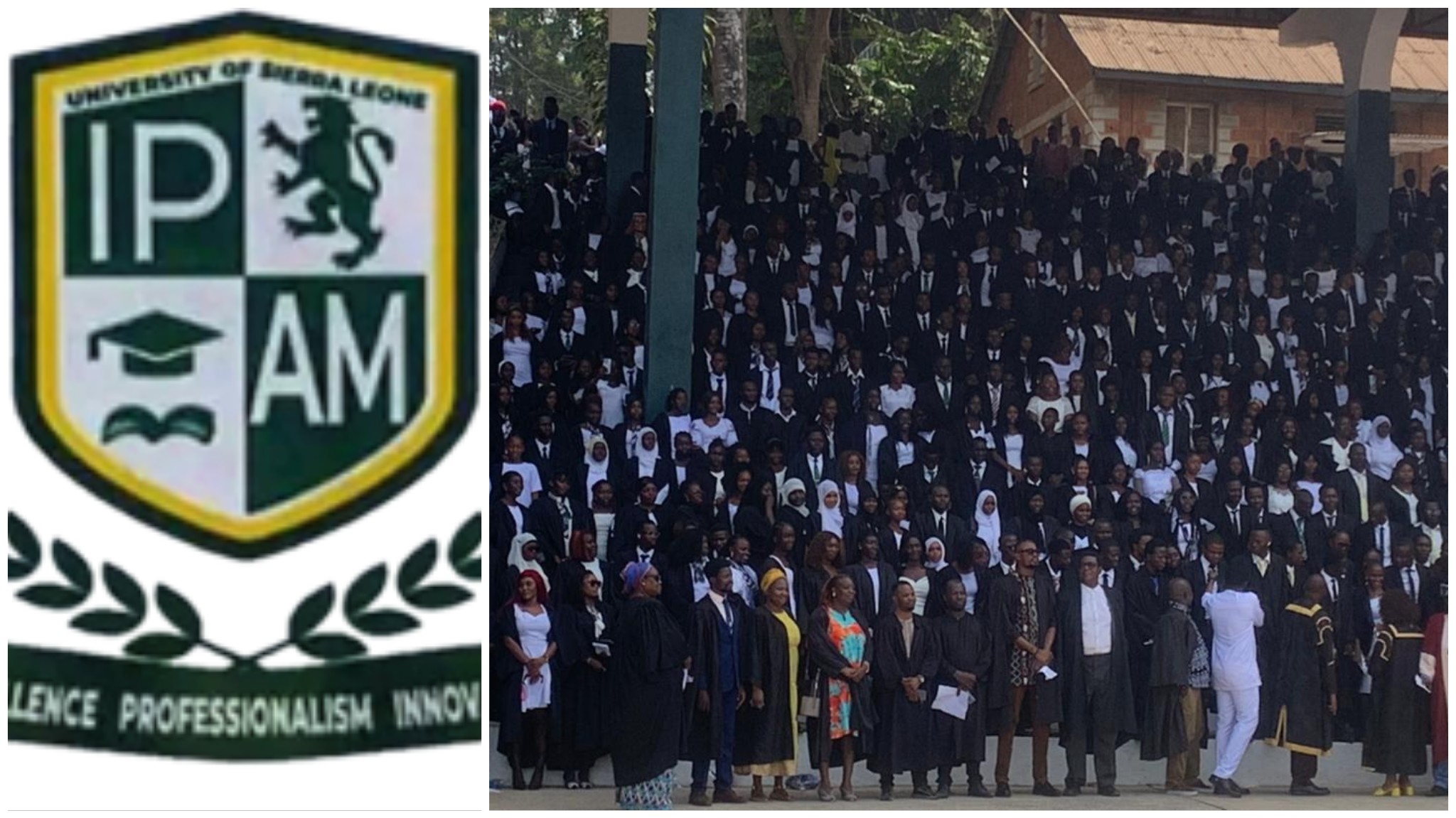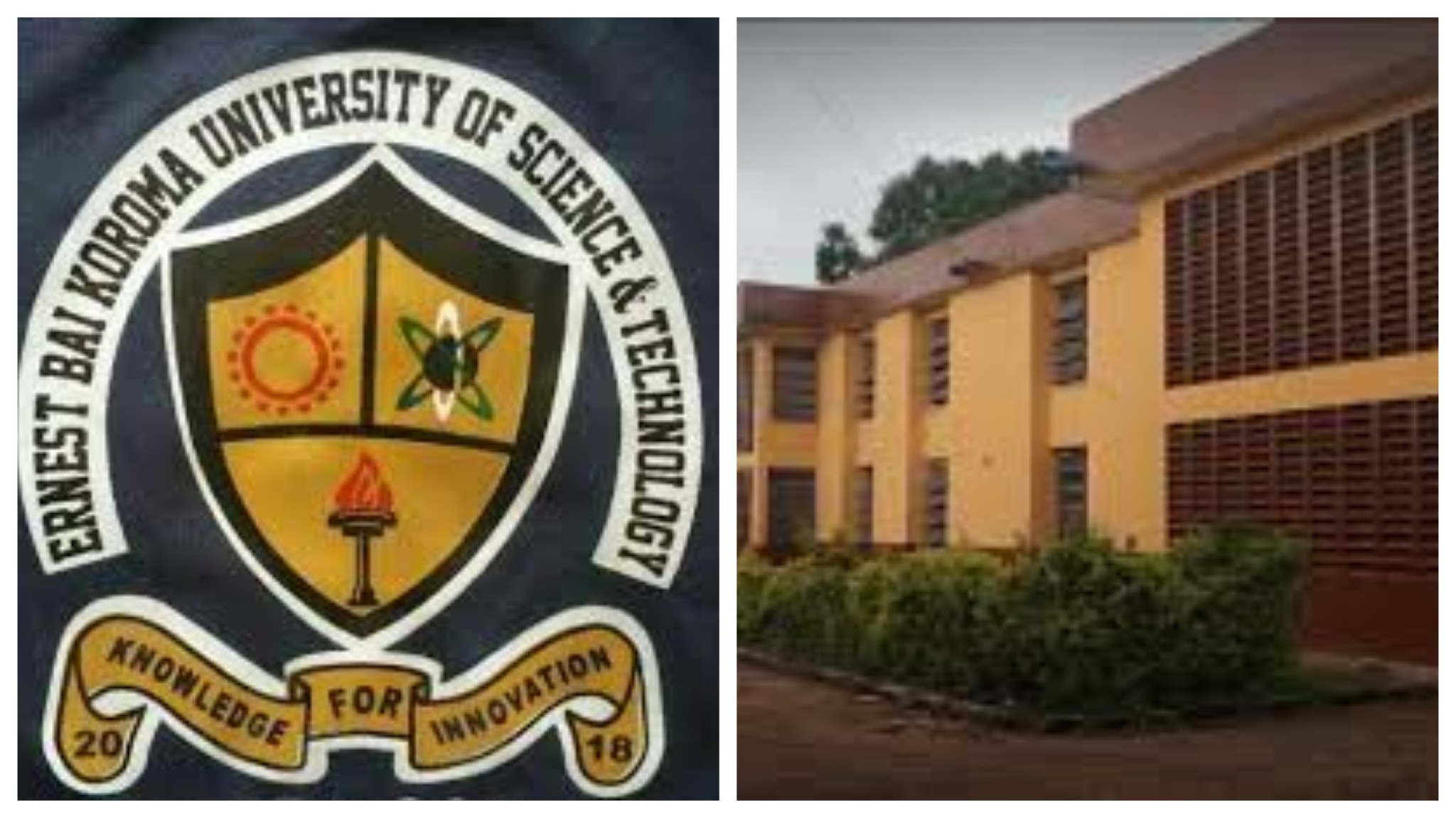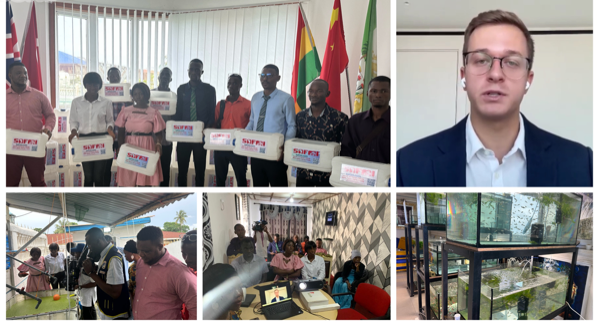
Artem Volchenko, Executive Director of SAFMI, has introduced a species of fish which consume mosquito larvae as their diet. This very innovative approach to drastically reducing the mosquito population would go a long way to complement the government’s fight against malaria in Sierra Leone.

Artem Volchenko, Executive Director of SAFMI marking presentation at the training
Artem Volchenko is therefore calling on the government of Sierra Leone, the general public and interested stakeholders to intensify the fight against the killer disease – malaria. He made the call during two days intensive training of volunteers by Save Africa from Malaria Infection (SAFMI) Foundation Tuesday 30 to 31 August, 2024 in Freetown, focusing on the latest innovative method of combating malaria in Sierra Leone.

Artem Volchenko, Executive Directorof of SAFMI who doubles as lead trainer disclosed that “this is a concerted effort to deploy natural, cost-effective, and environmentally friendly strategies to control mosquito populations and reduce malaria across Sierra Leone”.
He spoke on the importance of volunteers in the fight against malaria in Sierra Leone, adding that there is urgent need to eradicate malaria in Sierra Leone with the help of the Gambusia Affinis fish.

He noted that the Gambusia Affinis, commonly known as mosquito fish, when placed into strategic water bodies is capable of consuming up to 300 mosquito larvae in just five minutes, adding that this offers a new biological solution to mosquito control.
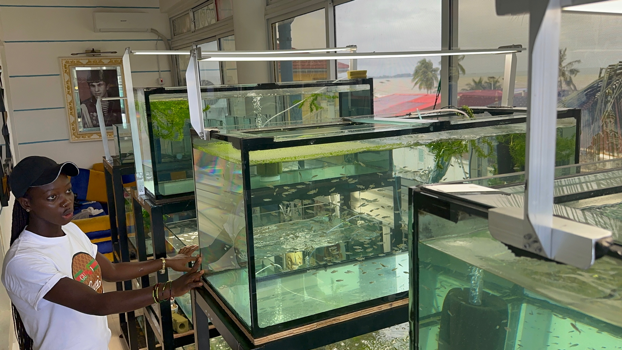
He noted that the foundation’s initiative is to leverage this natural predator to reduce the mosquito population and, consequently, the spread of malaria in Sierra Leone.
Artem Volchenko, revealed that Gambusia Affinis, is a handy fish species, which thrives in various water conditions, making them ideal for deployment in Sierra Leone’s diverse aquatic environments. He said they are viviparous, meaning they give birth to live young offspring, and can reproduce rapidly under optimal conditions. He added that the females can produce up to 70-100 every two months, ensuring a sustainable population of fish capable of controlling mosquito larvae.

The foundation’s work, he added is organized in three phases. Phase 1 focuses on establishing partnerships with local businesses, educational institutions, and other high-traffic areas to place water tanks stocked with Gambusia. These tanks, prominently branded with SAFMI’s logo, serve as both a functional solution and an educational tool, raising awareness about malaria prevention.
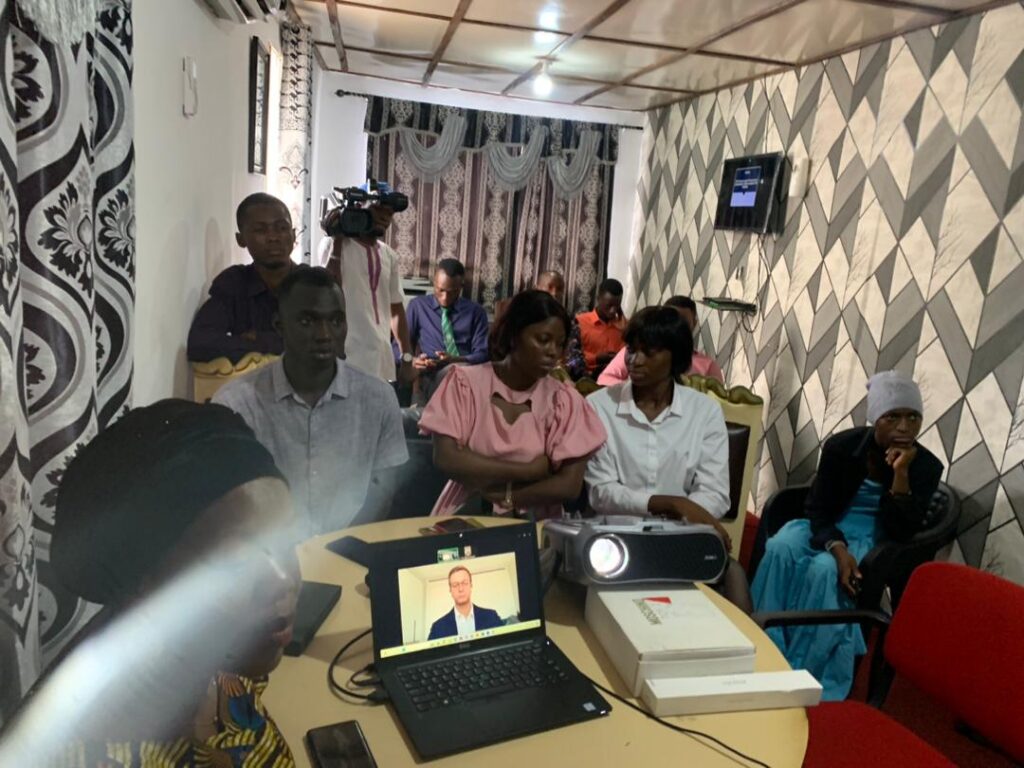
Phase 2 involves the maintenance and care of these water tanks. Volunteers are scheduled for weekly visits to ensure the well-being of the fish and the cleanliness of the tanks. This phase also includes water quality management and monitoring for any issues, such as sick fish or tank pollution.
Phase 3 comprises the training and capacity-building phase that equips volunteers with the necessary skills for fish care, breeding, and water tank maintenance. Volunteers are trained in the biology and habitat requirements of Gambusia and receive hands-on experience in tank setup and maintenance.

Alhaji Dauda Bangura with volunteers in Sierra Leone at SAFMI fish farm in Sierra Leone
Alhaji Dauda Bangura, a facilitator at the event, highlighted the initiative’s alignment with the broader efforts of the World Health Organization (WHO) and other partners in the fight against malaria in Africa. SAFMI’s program which was introduced in Sierra Leone a couple of months ago, has already begun to show promise in preventing the spread of malaria. Bangura emphasized the importance of preventive measures and encouraged local communities to participate actively in the initiative.
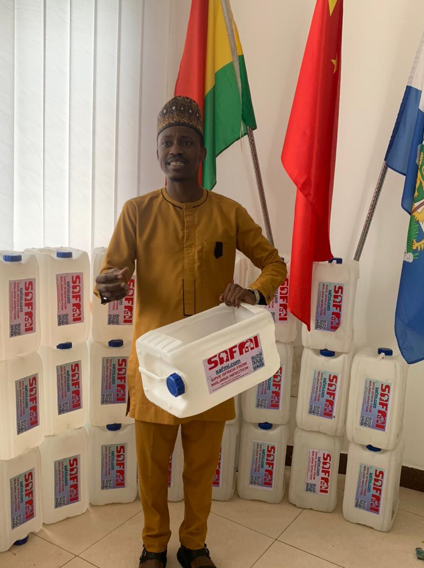
During the training session, volunteers engaged in discussions and asked pertinent questions about the project. Both Volchenko and Bangura provided detailed answers, ensuring that all participants were well-informed and prepared for their eventual roles in the initiative.
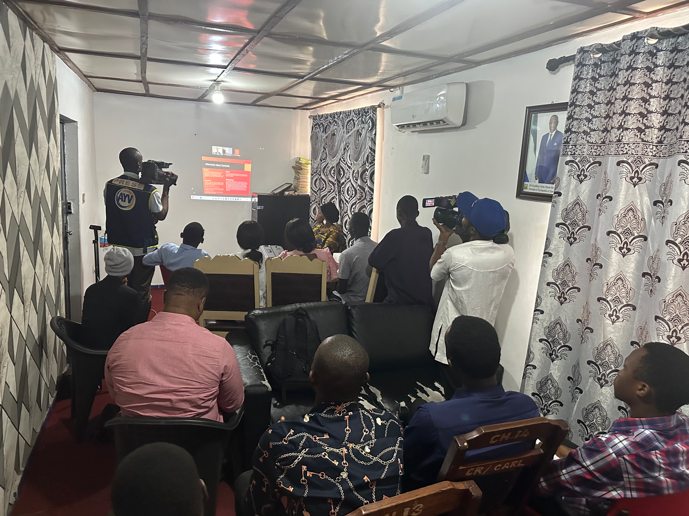
Volunteers listening to the Presentation by Artem Volchenko, the Executive Director of SAFMI on the important of the Malaria fish and how to keep them alive
The SAFMI Foundation’s efforts show a united front in the battle against malaria. By integrating scientific knowledge with community engagement, SAFMI aims to create a sustainable and impactful program that not only addresses the immediate threat of malaria but also builds long-term resilience within communities.

With the foundation continuing its fight to against malaria, it hopes to expand its efforts beyond Sierra Leone, targeting other African countries such as Liberia, Guinea, and The Gambia and with continued support from local and international partners, SAFMI is poised to make significant strides in eradicating malaria and improving public health across the continent.

The training climaxed with a conducted tour of the Fish Farm in the western of Freetown.


